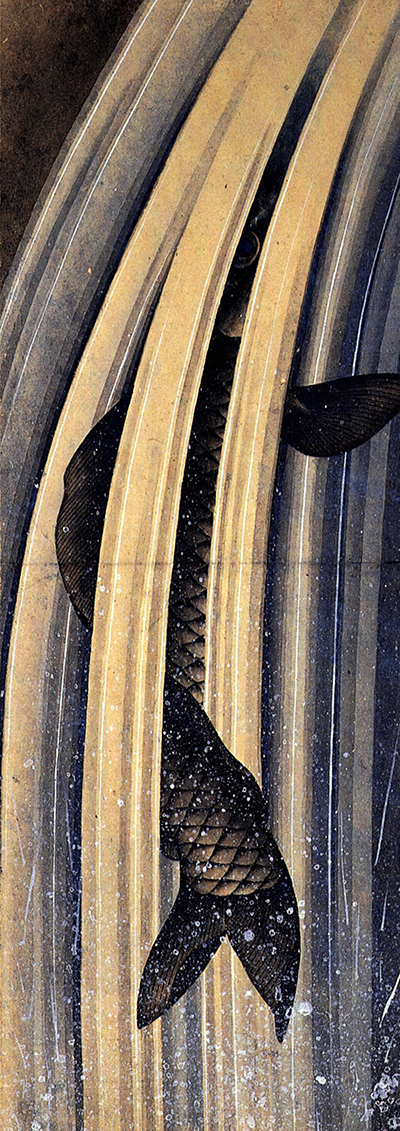Hokusai
Carp Leaping up a Cascade by Hokusai
This painting of drama and the natural world though, Carp Leaping up a Cascade, depicts the great passions of Hokusai – that of movement, nature and emotive life and the constant struggle to achieve.
Katsushika Hokusai is largely regarded as a father of Japanese art and is known the world over by being the creator of the iconic, The Great Wave off Kanagawa – part of his Mount Fuji series. It is a piece of work which captures the scene not just in its natural colours and tones evoking the surging spring rivers but in the very dimensions of the painting. Hokusai’s use of an extended and narrowed portrait form allows the artist to capture the downward flow of the water as well as the upward movement of the fish.
This form also allows Hokusai to show the very clear effort the fish is putting in to its task. The twist of the tail between the streaming water and the flick of the fin rising above the surge are indicators of this. It is perhaps in the hidden head and just the glimmer of the carp’s eye that most intrigues and challenges however. It is also a demonstration of Hokusai’s true craft of bringing life and landscape together.
With the carp racing for its breeding grounds in the Japanese highlands – its own place of birth some years previously, it is thought to suggest success against all the odds. In reality though, whether the goal really is achieved is left very much for the viewer to make up his or her own mind. Perhaps that partially hidden eye will provide the answer? While the artist’s woodblock print depicting that tumultuous wave crashing down upon the traditional Japanese fishing boats may be the work he is most famous for, and may have turned the tide across Europe to the Impressionism movement, this evocative image of the carp making its way through the cascading waterfall is an image which many could well align themselves with far more readily.
